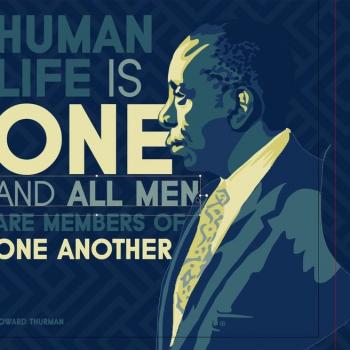This is the ninth installment of Dr. Roberts' "Master Class for Pastors." The first parts are the Introduction, "Who Are Your Partners?" "The Impact of Thanksgiving," "How Do You Talk About Your Church?" "Understanding Your Cultural Context," "Nine Stereotypes for Pastors," "Pastoring is Always Personal," "Pastoring in Always Personal: Is This Good News or Bad News?"
My fellow Protestants and I tend to think of the Apostle Paul mainly as a theologian. He is, after all, the human author of the bedrock upon which our theology rests. From Paul we get salvation by grace through faith and justification by faith. So, when we picture Paul at work, he is poring over one of his letters, deep in thought and prayer.
Increasingly, however, Christians from a wide variety of theological traditions are seeing Paul from new points of view. Yes, he is a theologian. But his theology emerges from his work as a church planter and pastor. His letters are not primarily theological treatises, but rather pastoral tools by which Paul sought to shepherd his churches. So, when we envision Paul at work, we see him preaching the Gospel, teaching converts, and shepherding his churches. From this perspective, Paul is doing the sorts of things pastors do today, though without pulpits, pews, cell phones, and the Internet.
Yet, as we read Paul's own letters carefully, another image of Paul emerges, one in which he is a worker. In 1 Thessalonians 2:9, for example, we read, "You remember our labor and toil, brothers and sisters; we worked night and day, so that we might not burden any of you while we proclaimed to you the gospel of God." This "labor and toil" included that which Paul did as a church planter. But this verse makes it clear that his "labor and toil" had mainly to do with the work Paul did "so that we might not burden any of you while we proclaimed to you the gospel of God." The language of burdening here refers to the weight of financial support. Because Paul worked at a "real job," he was able to support himself and not depend on charity from the Thessalonians.
We know from the Book of Acts that Paul's day job was as a tentmaker (skenopoios, Acts 18:3). He made tents by sewing together large pieces of leather. Thus, you'll find some commentators who refer to Paul as a leather-worker. This was hard work and it occupied the majority of Paul's waking hours. Thus, in 1 Corinthians 4:12, Paul writes, "we grow weary from the work of our own hands." And in 2 Corinthians 11:27, he includes "toil and hardship" among the dangers he faced as an apostle.
By working as a tentmaker, Paul was able to offer the Gospel to people "free of charge" (1 Corinthians 9:18). In so doing, he distinguished himself from the popular philosophers and preachers of his day who were often supported by their followers. Naturally, this raised doubts about their motives. Paul, on the contrary, was not preaching the Gospel in order to fatten his wallet. This strengthened his credibility among those who heard his message, as well as those who chose to accept this message and join the community of believers. Moreover, it's quite likely that Paul used the workplace as a platform to share the Gospel with his customers and co-workers.
Why is it important for us to take seriously Paul's life as a worker? One of the main reasons is that Paul serves as a powerful example of what we would call a lay minister. He was not a priest or a full-time missionary. His daily life was not like that of the typical ordained person in our day who works for a church. Rather, Paul's life was much closer to the experience of the people we call the laity.
The image of Paul the worker and lay minister helps break the power of one of the strangleholds that keeps the body of Christ from thriving. I'm thinking here of what might be called "clergyism." This is a view of church and ministry that puts the ordained clergy in the center. It minimizes the importance of the people of God and their potential for ministry. It weakens the church by implying that what really matters is what the pastors, priests, and preachers do. By suggesting that the real ministry comes from the clergy, clergyism rejects the biblical notion of ministry and strips the people of their calling and duty as ministers of Christ.
Those of us who serve full-time on church staffs have the duty, I believe, to hold up for our people the example of Paul the worker. What an encouragement this can be for them! And not just an encouragement, but also a challenge to imitate the example of Paul. The church will never become what God intends it to be until the people of God embrace their high calling as full-time ministers of Christ, both in the church and in the world.
2/8/2012 5:00:00 AM





